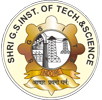Program Outcomes (MCA)
1.Computational Knowledge:
Apply knowledge of computing fundamentals, computing specialisation, mathematics, and domain knowledge appropriate for the computing specialisation to the abstraction and conceptualisation of computing models from defined problems and requirements.
2. Problem Analysis:
Identify, formulate, research literature, and solve complex computing problems reaching substantiated conclusions using fundamental principles of mathematics, computing sciences, and relevant domain disciplines.
3. Design /Development of Solutions:
Design and evaluate solutions for complex computing problems, and design and evaluate systems, components, or processes that meet specified needs with appropriate consideration for public health and safety, cultural, societal, and environmental considerations.
4. Conduct Investigations of Complex Computing Problems:
Use research-based knowledge and research methods including design of experiments, analysis and interpretation of data, and synthesis of the information to provide valid conclusions.
5. Modern Tool Usage:
Create, select, adapt and apply appropriate techniques, resources, and modern computing tools to complex computing activities, with an understanding of the limitations.
6. Professional Ethics:
Understand and commit to professional ethics and cyber regulations, responsibilities, and norms of professional computing practice.
7. Life-long Learning:
Recognise the need, and have the ability, to engage in independent learning for continual development as a computing professional.
8. Project management and finance:
Demonstrate knowledge and understanding of the computing and management principles and apply these to one’s own work, as a member and leader in a team, to 16 manage projects and in multidisciplinary environments.
9. Communication Efficacy:
Communicate effectively with the computing community, and with society at large, about complex computing activities by being able to comprehend and write effective reports, design documentation, make effective presentations, and give and understand clear instructions.
10. Societal and Environmental Concern:
Understand and assess societal, environmental, health, safety, legal, and cultural issues within local and global contexts, and the consequential responsibilities relevant to professional computing practice.
11. Individual and Team Work:
Function effectively as an individual and as a member or leader in diverse teams and in multidisciplinary environments.
12. Innovation and Entrepreneurship:
Identify a timely opportunity and using innovation to pursue that opportunity to create value and wealth for the betterment of the individual and society at large.
PSOs
Program Educational Objectives
PEO1:
Graduates will have technical expertise with the proficiency in modern programming languages, frameworks and tools relevant to current industry trends
PEO2:
Graduates will effectively communicate technical concepts and ideas, demonstrate strong teamwork and collaboration skills, also will possess interpersonal skills necessary for building and maintaining relationships with colleagues, clients and stakeholders
PEO3:
Graduates will exhibit professional conduct with understanding the importance of social responsibility and ethical use of technology
PEO4:
Graduates will possess the entrepreneurial mindset with demonstration of leadership qualities and will be able to effectively manage projects and resources in a professional environment


